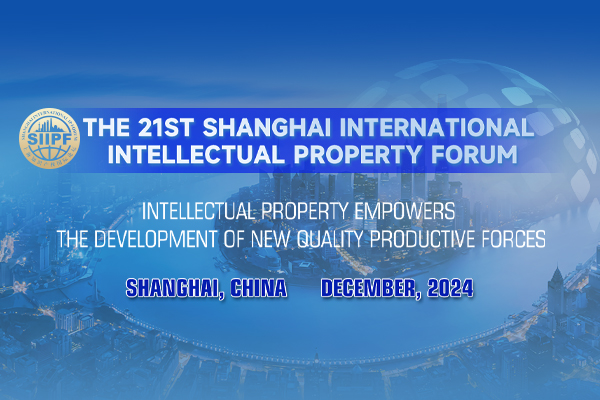(Translation for Reference Only)
Evaluation and Recognition Measures for Shanghai Intellectual Property Innovation Awards
Chapter 1 General Provisions
Article 1 Purpose and Basis
To enhance the public's awareness of innovation, stimulate the vitality of innovation and creation, promote the high-quality creation, high-level protection, and efficient application of intellectual property (IP) in Shanghai, and build Shanghai into an international IP leader and protection center, these measures are formulated based on the Regulations of Shanghai Municipality on Intellectual Property Rights Protection and other relevant provisions.
Article 2 Scope of Application
These measures apply to the application, recommendation, evaluation, management, and promotion of the Shanghai Intellectual Property Innovation Awards (hereinafter referred to as the "SIPIA").
Article 3 Awards Setting
The SIPIA is a municipal-level recognition project, including the Innovation Awards (Creation, Protection and Application) and the Innovation Awards (First, Second and Third Prizes for Patents).
The Innovation Awards (Creation, Protection and Application) have no classification, with no more than 3 awards for each, jointly awarded by the Shanghai Municipal People's Government (SMPG) and the World Intellectual Property Organization (WIPO). The Innovation Awards (First, Second and Third Prizes for Patents) have a maximum of 5, 15, and 25 awards, respectively, awarded by the SMPG.
The SIPIA is evaluated once every three years.
Article 4 Principles of Rewards and Evaluation
The SIPIA recognizes enterprises and institutions in Shanghai that have made outstanding achievements in the creation, protection, and application of intellectual property, as well as outstanding patent projects, with the evaluation based on the principles of "openness, fairness, and justice".
Article 5 Evaluation and Recognition Committee and Its Functions
The SMPG has established the Evaluation and Recognition Committee for the Shanghai Intellectual Property Innovation Awards (hereinafter referred to as the "ERC"), which is responsible for the guidance and management of work related to the SIPIA, reviewing the proposed award-winning units and patent projects, and researching and deciding on major matters.
The ERC members are nominated by the Shanghai Intellectual Property Administration (SIPA) in conjunction with relevant departments and are submitted to the SMPG for approval.
Article 6 Evaluation and Recognition Office and Its Functions
The Evaluation and Recognition Office of the Shanghai Intellectual Property Innovation Awards (hereinafter referred to as the "ERO") serves as the working body of the ERC, located in the SIPA. It is responsible for the formulation of relevant rules for the application, recommendation, evaluation, and supervision of the SIPIA, as well as the organization, service, and daily management of associated evaluation activities.
Article 7 Evaluation Expert Group and Its Functions
The ERO selects relevant experts and scholars from universities, research institutions, technology and cultural enterprises, intellectual property service organizations, and industry associations based on review needs to form several Evaluation Expert Groups (EEGs) after obtaining consent from the ERC.
The EEGs, based on the principles of "objectivity, fairness, and prudence", conduct professional evaluations of the submitted projects in accordance with the evaluation procedures and rules specified in these measures and propose a list of nominated award winners for each category.
Chapter 2 Application Eligibility and Evaluation Criteria
Article 8 Application Eligibility for Innovation Awards (Creation, Protection and Application)
To apply for the Innovation Awards (Creation, Protection and Application), the applicant must meet the following conditions:
(1) The applicant must be an enterprise or institution registered in the administrative region of this Municipality, with a good credit record;
(2) The applicant must not have previously won any of the Innovation Awards (Creation, Protection and Application);
(3) The applicant can only apply for one of the Innovation Awards (Creation, Protection and Application).
Article 9 Evaluation Criteria for the Innovation Awards (Creation)
The Innovation Awards (Creation) is awarded to enterprises and institutions that have made outstanding achievements in intellectual property creation and produced high-value intellectual property results. Awardees must meet the following conditions:
(1) Have major breakthroughs in key technologies, possess independent intellectual property rights in core technologies and key products, maintain continuous innovation in creation methods and content expression, and have original works with high literary and artistic value and social recognition;
(2) Establish a continuous innovation mechanism, with ongoing growth in R&D and intellectual property investment, as well as high-quality and high-value intellectual property output;
(3) Have a broad and reasonable patent layout or rich and high-quality copyright resources, use intellectual property to create core competitiveness and actively explore domestic and international markets.
Article 10 Evaluation Criteria for the Innovation Awards (Protection)
The Innovation Awards (Protection) is awarded to enterprises and institutions with a strong awareness of intellectual property protection, effective protection mechanisms, and significant and successful cases of intellectual property protection. Awardees must meet the following conditions:
(1) Have a sound intellectual property risk early warning and dispute response mechanism;
(2) Innovate in protection mechanisms and comprehensively utilize intellectual property protection means to address prominent issues in intellectual property protection;
(3) Have a professional intellectual property protection team, with successful cases of intellectual property protection gaining widespread attention and significant influence both domestically and internationally.
Article 11 Evaluation Criteria for the Innovation Awards (Application)
The Innovation Awards (Application) is awarded to enterprises and institutions with outstanding intellectual property application capabilities and significant results. Awardees must meet the following conditions:
(1) Achieve intellectual property transformation through transfer, licensing, investment in kind, financing, etc., and obtain significant economic and social benefits;
(2) Skillfully use intellectual property analysis methods to carry out patent navigation, high-value patent cultivation, and other work; promote and disseminate excellent works through multiple channels, engage in copyright trade, and enhance the economic contribution rate and cultural influence of the copyright industry;
(3) Innovate in the application means and mechanisms of intellectual property to promote the realization of intellectual property value and enhance the comprehensive benefits of intellectual property.
Article 12 Application Eligibility for Innovation Awards (First, Second and Third Prizes for Patents)
To apply for the Innovation Awards (First, Second and Third Prizes for Patents), the applicant must meet the following conditions:
(1) The applicant must be a patent holder registered in this municipality or a resident with a household registration or residence permit in this municipality; if there are several patent holders, one of them shall act as the applicant with the consent of all patent holders;
(2) The patent project for which the application is being made must never have won the Chinese Patent Award, Innovation Award, or Shanghai IP Invention Award.
(3) The patent right must be valid, and there must be no legal disputes by the application deadline.
(4) The same patent right holder can submit no more than 2 projects for evaluation.
Article 13 Evaluation Criteria for the Innovation Awards (First, Second and Third Prizes for Patents)
Patents that are granted by the Patent Administration Department under the State Council and meet the following conditions may be awarded the Innovation Awards (First, Second and Third Prizes for Patents):
(1) Before the application deadline (including the deadline date, subject to the date of the grant announcement), the patent for invention, utility model, or design must be granted by the Patent Administration Department under the State Council, which has strong stability of rights and excellent quality of the patent text;
(2) The technical solution of the invention patent or utility model must be novel, highly innovative, and of a high technical level, making significant contributions to the solving of key and important technical issues in the field; the design patent must have unique shapes, patterns, and colors, with outstanding design points in the relevant product area;
(3) The patent must have been applied for by the patent holder or licensed to others, playing an important role in enhancing the market competitiveness of the product, achieving significant economic or social benefits, and having good development prospects, and the relevant product must have obtained patent product registration certification;
(4) The patent must have comparatively complete protection measures.
Chapter 3 Application Evaluation
Article 14 Application Notification
The ERO shall publish an application notification through relevant media, networks, and other public channels, announcing the specific application time and requirements, as well as the evaluation procedures and rules.
Article 15 Internal Announcement
Prior to applying for the Innovation Awards, the unit and the patent holder shall make an internal announcement within their respective units, with an announcement period of no less than 5 working days.
Article 16 Selective Recommendation
The Innovation Awards adopt a recommendation system. The relevant candidate patent projects and units (hereinafter collectively referred to as "candidates") shall be recommended to the ERO by units and individuals that meet the following requirements (hereinafter collectively referred to as "recommenders"):
(1) Member units in the Shanghai Intellectual Property Joint Conference and various district governments can recommend candidate patent projects and candidate units;
(2) Academicians of the Chinese Academy of Sciences (CAS) and the Chinese Academy of Engineering (CAE) can recommend candidate patent projects, and two academicians from the same professional field can jointly recommend one candidate patent project in their professional field. Each academician can only make one recommendation.
The ERO may, when releasing the application notification, clarify the allocation of recommendation quotas based on the number of Innovation Awards, taking into account the characteristics of the municipality's industry, the number and distribution of currently valid patents, etc.
Article 17 Recommendation Review
Each recommender should review the eligibility of the applying unit or the applying patent project and the completeness of the application materials and publicly announce the proposed candidates.
For candidate patent projects recommended by academicians of the CAS and the CAE, public announcements should be made by the local government of the district where the applicant is located, following the principle of territory.
Article 18 Formal Review
The ERO should conduct a formal review of the completeness and standardization of the materials submitted by the candidates, summarize and classify the eligible ones according to the category of the award applied for and the technical field, and organize corresponding EEGs for initial evaluations and re-evaluations based on the classification.
Article 19 Initial Evaluation, Risk Screening, and Re-evaluation Defense
The ERO shall arrange for evaluation experts to vote on and score candidates that have passed the formal review according to relevant rules and preliminarily select candidates who meet the award criteria.
The ERO shall also search and analyze the patent of the candidate patent projects that passed the preliminary evaluation to screen and assess the risk of their patent rights being invalidated. The rules for adopting the screening results shall be determined by the panel discussion of the ERG.
After the preliminary evaluation and screening, the ERG shall carry out a re-evaluation of candidate units for the Innovation Awards (Creation, Protection and Application) and candidate patent projects for the Innovation Awards (First Prize for Patents) that passed the preliminary evaluation and screening and propose suggestions for award-winning units, patent projects, and awarded prizes.
Article 20 Review of the Proposed Award List
The ERO should report the results of the formal review, preliminary evaluation, and re-evaluation, as well as the award suggestions and the WIPO's confirmation opinions on the winners of the Innovation Awards (Creation, Protection and Application) to the ERC.
The ERC should convene a general meeting to collectively review the proposed award candidate list and put forward the proposed award list.
Article 21 Public Announcement and Handling of Objections
The ERO shall, after reporting and obtaining approval according to the prescribed procedures, publicly announce the proposed award list to the public, with an announcement period no less than 5 working days. If there are any objections received during the announcement period, the ERO shall investigate and verify them immediately and submit handling suggestions to the ERC.
The ERC shall make a decision on how to handle the objections after verifying them. The ERO shall notify the objector, the applicant, and the recommender of its decision within 15 days.
Article 22 Awards
After the public announcement, if there are no objections or the objections have been handled, the ERO will submit the proposed award list to the SMPG for approval and public announcement.
The Innovation Awards (Creation, Protection and Application) are jointly awarded by the SMPG and the WIPO with medals and certificates. The Innovation Awards (First, Second and Third Prizes for Patents) are awarded by the SMPG with medals, certificates, and bonuses.
Article 23 Rules for Bonus Use
For patent projects that receive the Innovation Awards (First, Second and Third Prizes for Patents), the bonus will be provided from the budget of the Special Fund for Shanghai Municipal Intellectual Property and uniformly paid to the applicant. If the awarded patent project involves multiple patent holders, the distribution of bonuses shall be negotiated among the patent holders themselves.
Patent holders who receive the Innovation Awards (First, Second and Third Prizes for Patents) shall allocate a portion of the awarded bonus to reward the inventors or designers of the awarded patents as well as the units and individuals who made substantial contributions to the application of the patent technology and the application and defense of the award.
(1) At least 40 percent of the bonus shall be used to reward the inventors or designers of the awarded patents;
(2) At least 20 percent of the bonus shall be used to reward the units and individuals who made substantial contributions to the application of the patent technology and the application and defense of the award.
Article 24 Publicity
This municipality encourages various forms of publicity for award-winning units and patent projects, to promote awareness of the importance of respecting knowledge, valuing science, and protecting intellectual property rights, create a favorable environment that encourages knowledge innovation, and stimulate enthusiasm for and the vitality of intellectual property innovation and creation.
Chapter 4 Supervision and Management
Article 25 Confidentiality and Avoidance System
The applying unit or individual should actively declare the trade secrets or other confidential information involved in the application materials. Relevant personnel involved in the innovation award evaluation should keep commercial secrets and other confidential information that they are aware of, and must not disclose the review results. Those who have an interest in the applying unit or individual or have other circumstances that may affect fair evaluation shall take the initiative to withdraw themselves.
Article 26 Handling of Recommenders for Illegal Acts
If a recommender provides false data or materials, or assists others in fraudulently obtaining the Innovation Awards, and the circumstances are serious, the ERO shall suspend or cancel his or her recommendation qualification and investigate corresponding liability according to the law.
Article 27 Handling of Candidates for Illegal Acts
If a candidate provides false data or materials or engages in other activities that may affect the impartiality of the Innovation Awards recommendation and evaluation, the ERO shall cancel his or her qualification for the awards and investigate corresponding liability according to the law.
Article 28 Handling of Evaluation Experts for Illegal Acts
If evaluation experts leak evaluation information or commit fraud, favoritism, or other malpractices during the evaluation process, the ERO shall report to the ERC to revoke his or her qualification as an evaluation expert and investigate corresponding liability according to the law.
Article 29 Handling of Award-Winners for Illegal Acts
If an award-winner uses improper means such as plagiarism or fraud to obtain an innovation award, the ERO shall seek approval from the SMPG to revoke the award, reclaim the medal, certificate, and bonus, and investigate corresponding liability according to the law.
Article 30 Credit Management
For individuals and organizations handled according to the provisions of Articles 26, 27, 28, and 29 of these measures, the SIPA shall include the relevant information in the municipality's directory of public credit information.
Article 31 Handling of Staff for Illegal Acts
If the SIPA and its staff abuse their power, neglect their duties, or engage in favoritism and bribery during the innovation award work, the supervisor and other individuals directly responsible for the work will be subjected to disciplinary measures and held responsible according to the law.
Any other personnel who engage in illegal acts during evaluation, supervision, or daily management of the innovation award work will be held responsible according to the law.
Chapter 5 Supplementary Provisions
Article 32 Effective Date
These measures come into effect on Jan 1, 2025, and remain valid until Dec 31, 2029.







